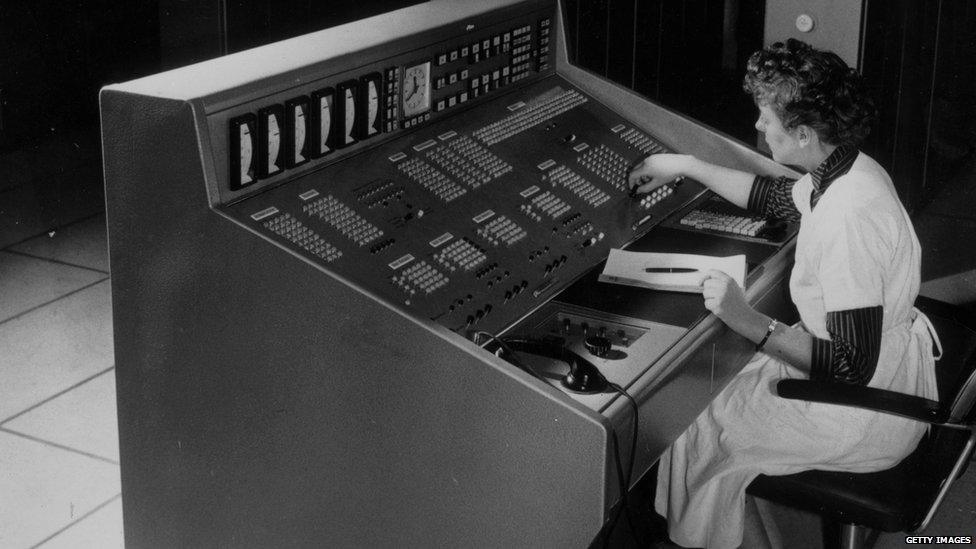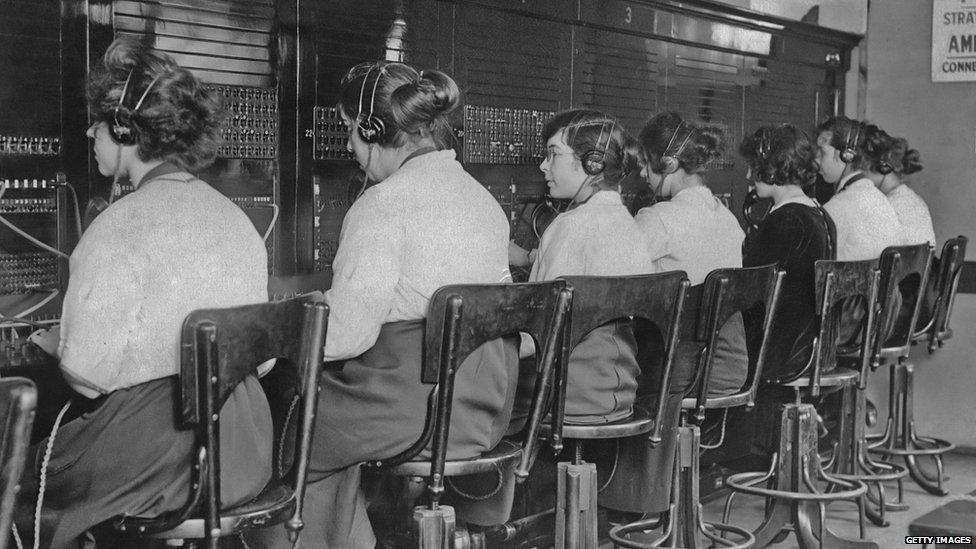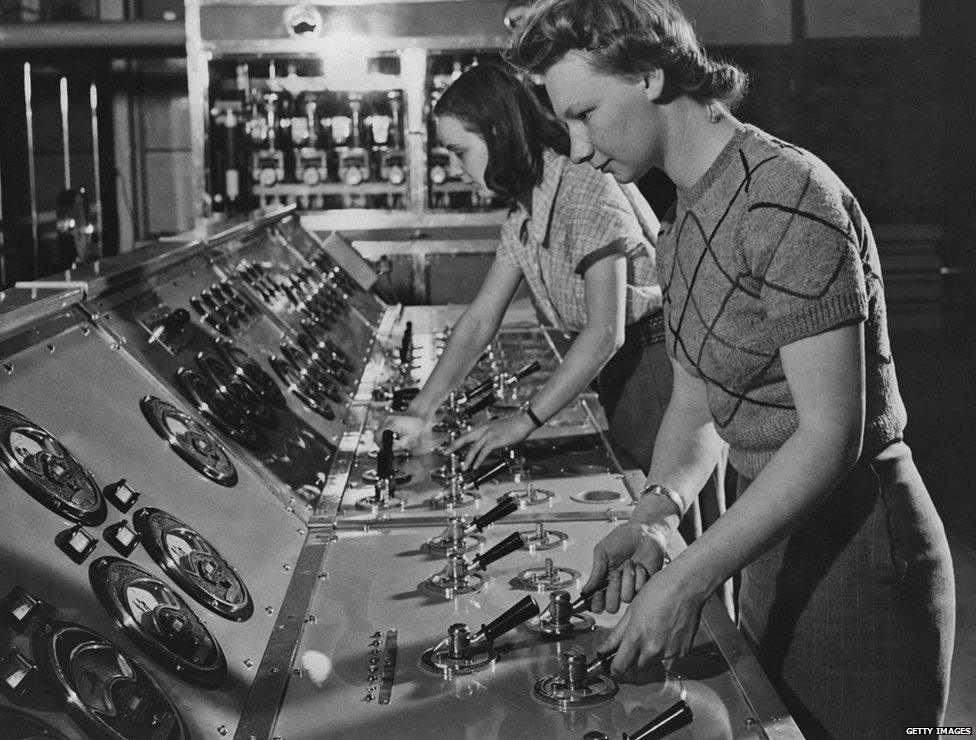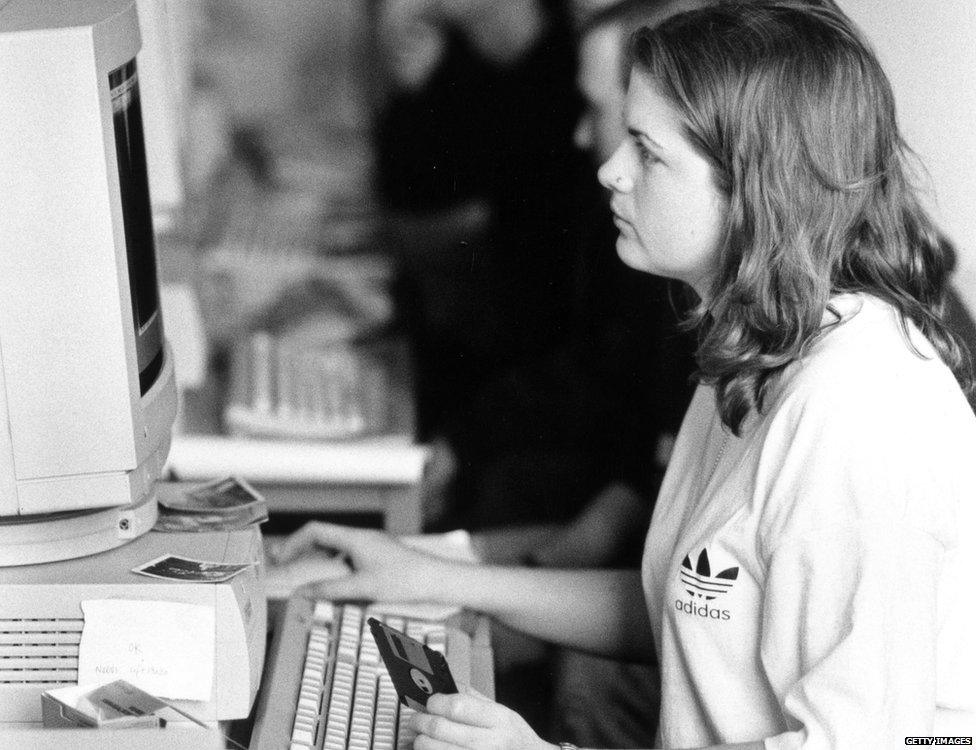Closing Facebook's gender pay gap only 'half the issue'
- Published

Facebook has announced it is the latest technology company to close the gender pay gap.
"I'm proud to share that at Facebook, men and women earn the same," wrote Lori Matloff Goler, external, vice president of people at the organisation.
Microsoft has also revealed that its female US employees earn 99.8 cents for every $1 its male employees are paid.
Both companies say they are focused on increasing diversity and equal opportunity within their workforces.
But what if the problem is more than whether women are being paid equal money for equal work?
For technology campaigners, salary is just one half of the issue.

Not quite how Facebook's offices look - these women are operating a telephone exchange more than half a century ago
"It's not quite enough to just to say, 'We're paying the men and women doing the same jobs, the same money,'" says Rachel Neaman, a director at Doteveryone.
She says you must also look at whether "there are the same numbers of men and woman doing the same jobs" in the technology industry and that is not currently happening.
At Facebook, Microsoft, Amazon and Twitter, more than three-quarters of people in global leadership roles are men. At Apple, it's 72%.
In the UK, women occupy fewer than 17% of technology jobs. Fewer than one in 10 leadership roles in technology companies is held by a women.
And out of any 100 software engineers - on average, four of them are women.

Fundamentally, in today's economic climate, these are influential and well-paid roles. Furthermore there is a massive skills shortage in the UK.
"If you don't have a diverse design team or leadership, you aren't going to get the right range of perspectives that are going to provide a product or service that is going to meet the needs of people," says Ms Neaman.
She gives the example of the Apple health kit - an app designed to help people monitor their fitness and lifestyle - which was released in 2014 and reportedly designed by a team made up solely of men.
It did not offer a way to track, or even acknowledge, a woman's menstrual cycle.
Doteveryone, founded by Martha Lane Fox who started lastminute.com, seeks to make the UK technology industry as diverse as possible.
It wants half of all technology jobs to be held by women by 2026 - and it says one of the best ways to do this, is make sure girls get the opportunity to study the right subjects at school to equip them for these roles.

"We need to start looking at how we encourage more girls to continue studying tech beyond GCSE - 14 is the age where we see the real cut off begin," Ms Neaman explains.
"There's something about how culturally we start to change the way tech is perceived, that tech starts to be seen not as something geeky and nerdy but as quite fun and cool.
"We need to make sure that girls are given the same opportunities as boys, that there is no unconscious bias."
Below are the global employment figures for some of the technology companies mentioned in the article.
Overall - 68% men, 32% women
Tech - 84% men, 16% women
Non-tech - 48% men, 52% women
Senior leadership - 77% men, 23% women
Microsoft
Overall - 73% men, 27% women
Tech - 83% men, 17% women
Non-tech - 58% men, 42% women
Leadership - 83% men, 17% women
Retail - 65% men, 35% women
Factory - 42% men, 58% women
Apple
Overall - 69% men, 31% women
Tech - 78% men, 22% women
Non-tech - 63% men, 37% women
Leadership - 72% men, 28% women
Retail - 70% men, 30% women
Retail leadership - 72% men, 28% women
Amazon
Overall - 61% men, 39% women
Leadership - 76% men, 24% women
Overall - 70% men, 30% women
Tech - 90% men, 10% women
Non-tech - 50% men, 50% women
Leadership - 79% men, 21% women
Find us on Instagram at BBCNewsbeat, external and follow us on Snapchat, search for bbc_newsbeat